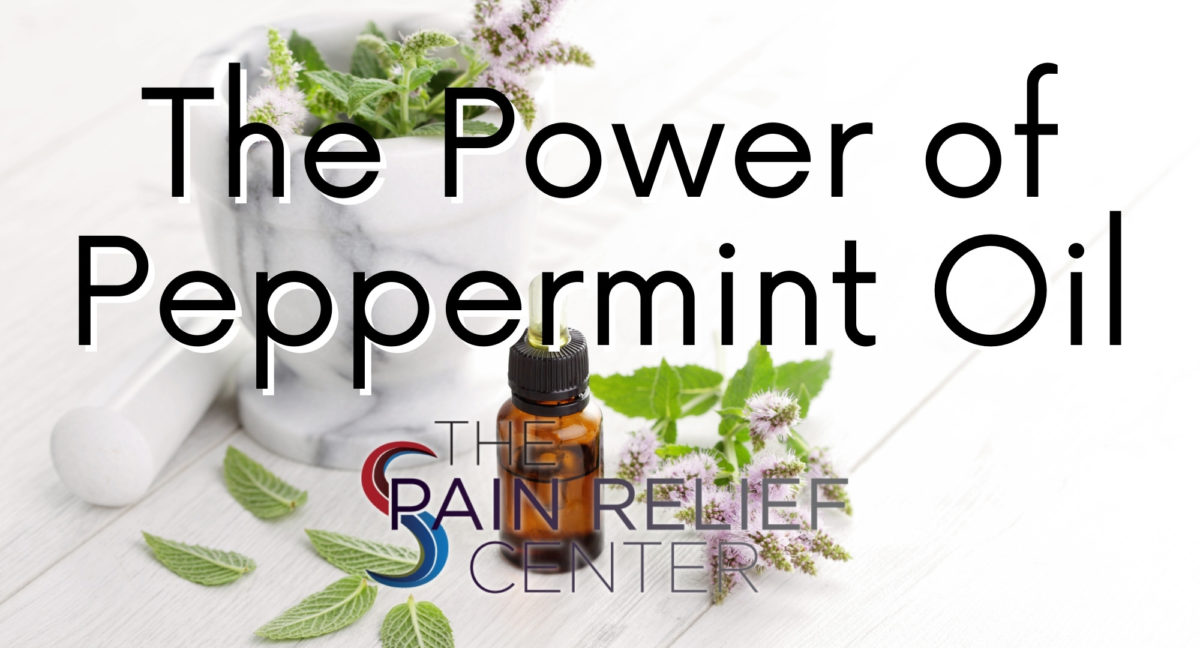The entire peppermint plant contains menthol, an organic compound with local anesthetic properties that provides a wonderful cooling sensation while it naturally alleviates discomfort. Because of this, peppermint essential oil has antibacterial, antiviral, anti-inflammatory, insecticidal, antispasmodic and carminative properties.
Peppermint is a cross between watermint and spearmint and is native to Europe. It is important to note that peppermint essential oil is intense and far more concentrated than other essential oils. The topical application of peppermint oil is generally safe, although it is necessary to dilute with a carrier oil like almond or jojoba oil.
The health benefits of peppermint oil
Indigestion – Peppermint oil is very helpful in digestion as it has a carminative property of expelling gas (from the stomach or intestines to relieve flatulence or abdominal pain or distension).
Massage several drops on your abdomen, place a drop on your wrists or inhale to soothe motion sickness or general nausea. Drinking mint tea has long been the antidote to an upset stomach. Inhaling peppermint oil is also said to help curb the appetite by triggering a sense of fullness.
Colds/Congestion – Menthol provides effective relief from many respiratory problems including nasal congestion, sinusitis, asthma, bronchitis and the common cold and cough. It is often included as an ingredient in natural chest rubs to help with congestion.
Massage 2-3 drops (along with a carrier oil) onto chest or drop into a humidifier to help clear sinus and lung congestion. If your head is feeling stuffed or you can’t stop coughing, try a peppermint essential oil steam.
Headache – Peppermint oil is terrific to keep on hand at your desk or in your purse, especially if you are prone to headaches. The use of this oil has also been known to lessen symptoms such as nausea, vomiting, sensitivity to noise and sensitivity to light.
With a small amount of almond or other carrier oil and a drop of peppermint oil, rub on your temples, forehead, over the sinuses (avoid contact with eyes), and on the back of the neck to help soothe headache and pressure.
For stress relief, the combination of peppermint, lavender and geranium essential oils added to a warm bath help relieve stiffness while absorbed through the skin.
Energy/Alertness – Peppermint oil affects and improves mental clarity and raises energy levels. If you’re trying to cut back on caffeine, this may be a blessing to your mid-afternoon lull.
Sore Muscles – Because peppermint oil has analgesic, anti-inflammatory and anti-spasmodic properties, it not only can relieve pain and inflammation but can also calm the spasms that cause muscle cramps.
And the list of uses goes on…
- For bug bites, use a combination of peppermint essential oil and lavender essential oil to quickly dismiss the itch.
- Add some peppermint oil to shampoo to treat dandruff.
- If you have a problem with ants in your house, leave a peppermint soaked cotton ball in their pathway. They’re not big fans of mint and you’ll have the nice aroma lingering in your home.
- For tired aching feet, add a few drops to a foot-bath for some relief of sore, swollen and overworked feet.
Side effects of peppermint oil
In most adults, the small doses of peppermint oil contained in dietary supplements and skin preparations appear to be safe. Pregnant and breastfeeding women, however, should avoid such products because little is known about their safety during pregnancy and lactation.
Possible side effects of peppermint oil include:
- Heartburn
- Allergic reactions such as flushing, headache, and mouth sores
- Anal burning during bouts of diarrhea
Although enteric-coated peppermint oil capsules may reduce the risk of heartburn, their protective coating can break down more quickly and increase the risk of heartburn when taken at the same time as prescription and over-the-counter medications that decrease stomach acid and which are often used for heartburn or acid reflux. It’s best to take such drugs at least two hours after taking enteric-coated peppermint oil products. A stomach condition called achlorhydria, in which the stomach doesn’t produce hydrochloric acid, also may hasten the coating’s breakdown. So people with the condition are advised against using peppermint oil.
Visit one of the best pain clinics in Dallas Texas for only the best that modern medicine has to offer.


